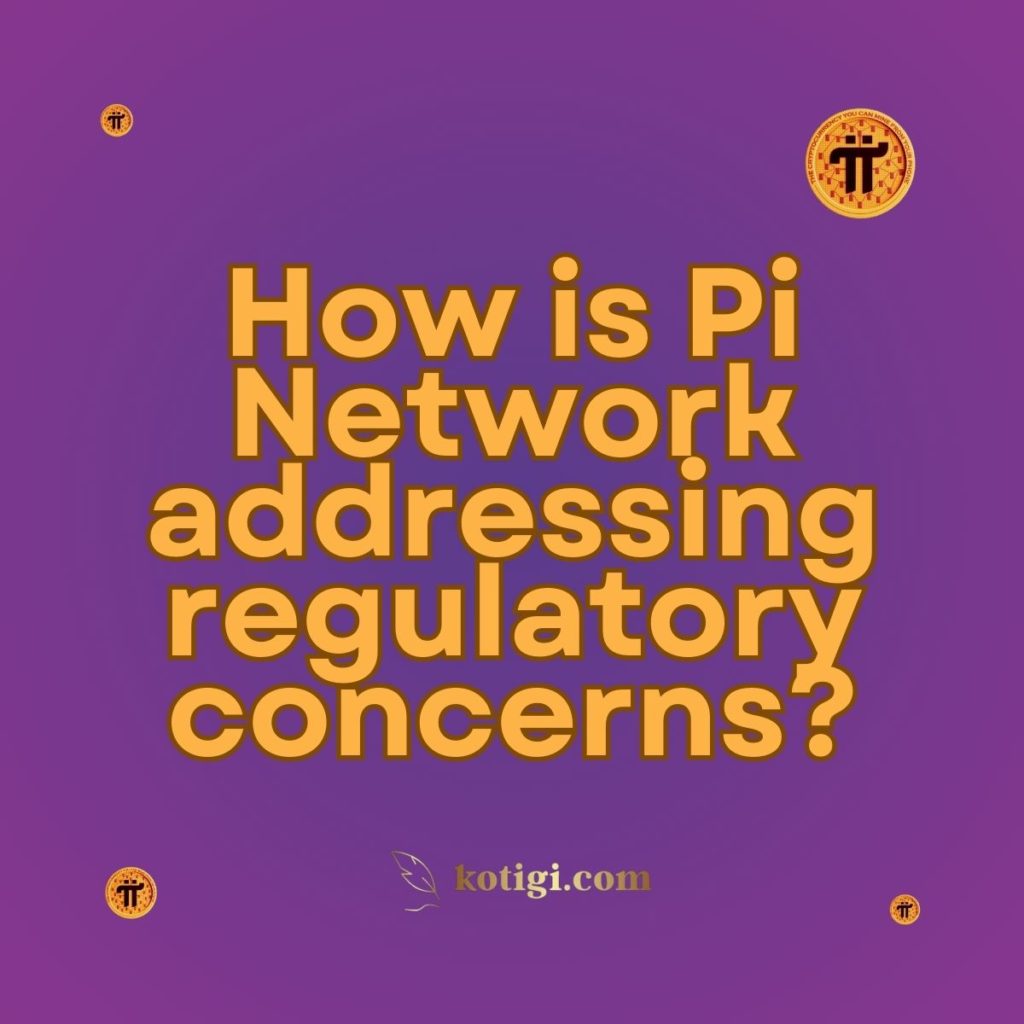
How is Pi Network addressing regulatory concerns?
Pi Network is taking several proactive steps to navigate the complex and evolving regulatory landscape associated with cryptocurrencies. As the project continues to grow, ensuring compliance with global regulations is crucial for its long-term sustainability and user trust. Below are some key strategies Pi Network is employing to address regulatory concerns.
1. Emphasizing Compliance with AML and KYC Regulations
1.1 Implementing Robust KYC Processes
To align with global anti-money laundering (AML) and know your customer (KYC) regulations, Pi Network has introduced KYC verification for its users. This process involves collecting and verifying user identities to prevent illegal activities such as money laundering, fraud, or terrorism financing. By implementing KYC, Pi Network aims to comply with regulations that require digital platforms to verify the identities of their users, thus enhancing security and trust within the network.
1.2 Monitoring and Reporting Suspicious Activities
In addition to KYC, Pi Network is likely developing systems to monitor transactions for suspicious activity that could indicate money laundering or other illicit activities. These measures are crucial for compliance with AML regulations, which require financial platforms to identify and report any suspicious transactions to the relevant authorities.
2. Ensuring Legal Compliance Across Jurisdictions
2.1 Tailoring Operations to Local Laws
Given the varying cryptocurrency regulations across different countries, Pi Network is working to tailor its operations to meet local legal requirements. This may involve adapting its services to comply with specific regional laws or limiting its operations in regions with particularly restrictive regulations. By doing so, Pi Network seeks to operate legally and ethically in every market it enters.
2.2 Engaging with Regulatory Authorities
Pi Network is likely engaging with regulatory authorities to stay informed about changes in the legal landscape and to ensure that it is meeting all necessary requirements. This proactive engagement helps the project anticipate and respond to regulatory changes, reducing the risk of non-compliance and potential legal challenges.
3. Focusing on Transparent Communication and Education
3.1 Providing Clear Information to Users
Transparency is a key component of Pi Network’s strategy to address regulatory concerns. The project is focused on providing clear and accessible information to its users about the legal and regulatory environment, as well as the potential risks involved in using the platform. This includes educating users on their tax obligations, the implications of token usage, and the importance of complying with local laws.
3.2 Regular Updates on Regulatory Compliance
Pi Network is committed to keeping its community informed about its efforts to comply with global regulations. By regularly updating users on its compliance initiatives and any changes in regulatory status, the project aims to build trust and maintain a transparent relationship with its global user base.
4. Preparing for Future Regulatory Challenges
4.1 Adapting to Evolving Regulations
As cryptocurrency regulations continue to evolve, Pi Network is preparing to adapt to new legal requirements. This involves staying ahead of regulatory trends and ensuring that the network’s technology, policies, and practices are flexible enough to accommodate future changes. By doing so, Pi Network aims to minimize disruptions and maintain compliance as the legal landscape develops.
4.2 Legal and Regulatory Advisory
Pi Network is likely consulting with legal and regulatory experts to navigate the complex legal landscape. These advisors help the project understand and interpret regulations, develop compliance strategies, and mitigate legal risks. This expertise is essential for ensuring that Pi Network remains compliant with laws in multiple jurisdictions.
Conclusion
Pi Network is addressing regulatory concerns through a combination of compliance, transparency, and adaptability. By implementing KYC and AML measures, tailoring its operations to local laws, engaging with regulators, and educating its users, Pi Network is working to build a secure and legally compliant platform. As the regulatory environment continues to evolve, Pi Network’s proactive approach will be key to its ongoing success and growth.




